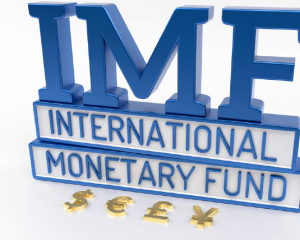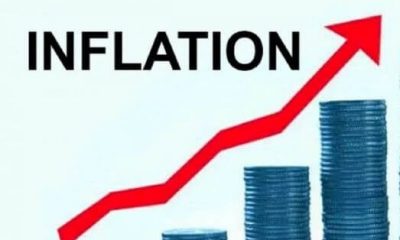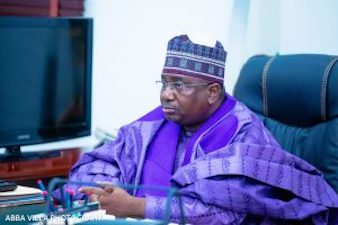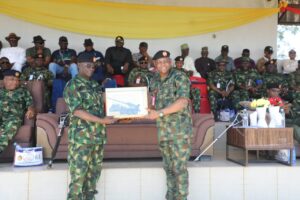Economy
IMF: Nigeria Economy ‘Gradually’ Recovering, Worries Over Unemployment, Inflation
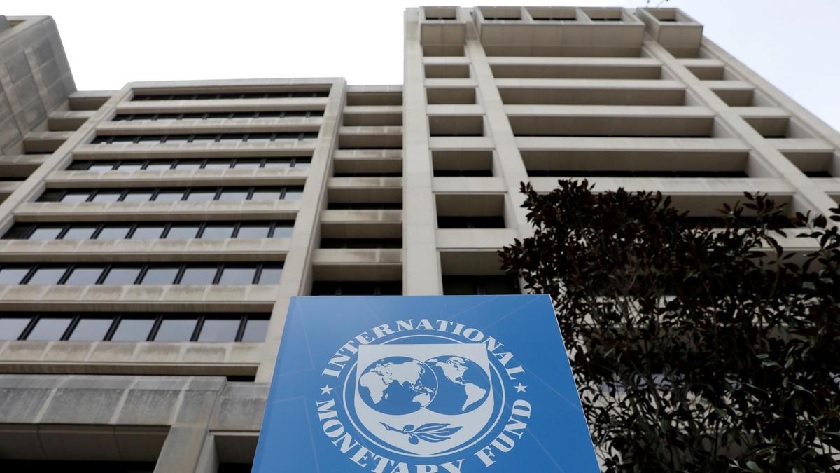
An International Monetary Fund (IMF) team on Thursday said that Nigeria’s economy was “gradually” recovering from the negative effects of the COVID-19 pandemic.
IMF disclosed this in its End-of-Mission statement from its headquarters in Washington, DC, on preliminary findings following virtual meetings by its staff teams with the Nigerian authorities from June 1 to 8.
The IMF team, led by Ms.
Jesmin Rahman, discussed recent economic, financial developments and outlook and noted that “real Gross Domestic Product (GDP) was recovering but unemployment and inflation remained elevated”.It added among other things that recent exchange rate measures were encouraging and further reforms were needed to achieve a fully unified and market-clearing exchange rate.
The findings also said the resurfacing of fuel subsidies was concerning, particularly in the context of low revenue mobilisation.
“The Nigerian economy has started to gradually recover from the negative effects of the COVID-19 global pandemic.
“Following sharp output contractions in the second and third quarters, GDP growth turned positive in fourth quarter 2020 and growth reached 0.5 per cent (year-over-year) in first quarter 2021, supported by agriculture and services sectors.
“Nevertheless, the employment level continues to fall dramatically and, together with other socio-economic indicators, is far below pre-pandemic levels.
“Inflation slightly decelerated in May but remained elevated at 17.9 per cent, owing to high food price inflation.
“With the recovery in oil prices and remittance flows, the strong pressures on the balance of payments have somewhat abated, although imports are rebounding faster than exports and foreign investor appetite remains subdued resulting in continued foreign exchange shortage.”
The report said that the incipient recovery in economic activity was projected to take root and broaden among sectors, with GDP growth expected to reach 2.5 per cent in 2021.
It added that inflation was expected to remain elevated in 2021, but likely to decelerate in the second half of the year to reach about 15.5 per cent, following the removal of border controls and the elimination of base effects from elevated food price levels.
“Tax revenue collections are gradually recovering but, with fuel subsidies resurfacing, additional spending for COVID-19 vaccines, and to address security challenges, the fiscal deficit of the Consolidated Government is expected to remain elevated at 5.5 per cent of GDP.
“Downside risks to the near-term arise from further deterioration of security conditions, and the still uncertain course of the pandemic both globally and in Nigeria,” it said.
The IMF team commended the Nigerian authorities’ measures to contain the transmission of COVID-19 in the country.
It also commended the on-going vaccination programme under the COVAX initiative, and expressed strong support to the Nigerian authorities’ efforts to acquire additional doses from countries with surplus stocks.
The IMF team, however, expressed its concern with the resurgence of fuel subsidies.
It reiterated the importance of introducing market-based fuel pricing mechanism and the need to deploy well-targeted social support to cushion any impact on the poor.
It recommended stepping up efforts to strengthen tax administration to mobilise additional revenues and help address priority spending pressures.
“The mission urged the authorities to keep reliance on the Central Bank of Nigeria (CBN) overdrafts for deficit financing within legal limits.
”The mission also advised the government to continue to make efforts to strengthen budget planning and public finance management practices to allow for flexible financing from domestic markets and better integration of cash and debt management,” it stated.
It said that the recent removal of the official exchange rate from the CBN website and measures to enhance transparency in the setting of the Nigerian Autonomous Foreign exchange rate (NAFEX) were encouraging.
The mission recommended maintaining the momentum toward fully unifying all exchange rate windows and establishing a market-clearing exchange rate.
On monetary policy, to strengthen the monetary targeting regime, the mission recommended integrating the interbank and debt markets and using central bank or government bills of short maturity as the main liquidity management tool, instead of the cash reserve requirements.
“The banking sector remains liquid and well-capitalized while non-performing loans (NPLs) are contained.
“The extension of the moratorium on principal payments of qualifying credit facilities on a case-by-case basis through March 2022 should be limited to viable debtors with strong pre-crisis fundamentals.
“CBN stress tests purport that the banking system would remain adequately capitalised except in case of a severe deterioration of credit quality.
“Nevertheless, it remains to be seen what share of forborne loans may turn non-performing as the impact of the pandemic abates.”
It, however, cautioned that since NPLs often rise at the later part of economic crisis, CBN’s strong oversight remained critical to safeguarding financial sector stability.
The IMF mission thanked the Nigerian authorities and other counterparts for what it termed “the open and thoughtful discussions and excellent cooperation”. (NAN)
Economy
NGX Closes Positive, Investors Gain N74bn

To end the week, the stock market rebounded from previous losses, gaining N74 billion.
Investor interest in MTN Nigeria, FBN Holdings, Guaranty Trust Holding Company (GTCO) and other equities lifted the market.
Notably, the market capitalisation opened at N56.014 trillion, adding N74 billion or 0.
13 per cent to close at N56.088 trillion.The All-Share Index also advanced by 0.
13 per cent, or 129.44 points, closing at 97,606.63, compared to 97,477.19 recorded on Thursday.As a result, the Year-To-Date (YTD) return increased by 30.54 per cent.
The market breadth closed positive, with 31 gainers and 19 losers on the floor of the Exchange.
On the gainers’ chart, Consolidated Hallmark Plc and Sterling Nigeria led by 9.
45 per cent each to close at N1.39 and N4.98 per share respectively.Mecure followed by 9.19 per cent to close at N10.10, Regency Alliance Insurance gained 9.09 per cent to close at 72k, while Fidson Healthcare Plc increased by 8.24 per cent to close at N15.10 per share.
Conversely, Deap Capital Management and Trust led the losers’ chart by 9.93 per cent to close at N1.36, NEM Insurance trailed by 9.71 per cent to close at N7.90 per share.
Daar Communications also lost 9.52 per cent to close at 57k, Tantalizers shed 9.09 per cent to close at 60k, while Dangote Sugar declined by 3.31 per cent to close at N31 per share.
Analysis of the market activities showed trade turnover settled higher relative to the previous session, with the value of transactions up by 20.33 per cent.
A total of 304.43 million shares valued at N5.60 billion were exchanged in 6,950 deals, compared with 277.75 million shares valued at N4.65 billon in 7,091 deals traded in the previous session.
Meanwhile, Access Corporation led the activity chart in volume and value with 68.26 million shares valued at N1.34 billon.(NAN)
Economy
NES Decries Rising Inflation, Unemployment, Poverty, Others

By David Torough, Abuja
The Nigerian Economic Society (NES) has decried Nigeria’s socioeconomic dilemmas, including; low personal incomes, dysfunctional education, healthcare systems, unemployment, rising inflation, poverty, amidst other critical issues.
This was part of the communique at the end of the association’s 65th annual conference held recently in Abuja with the theme: Socioeconomic Development in Nigeria: Imperatives, Implications, and Impacts.
It emphasised that the factors greatly contribute to insecurity, food scarcity, energy poverty, widening social inequality as macroeconomic instability and called on relevant stakeholders to urgently address the challenges.
President Bola Tinubu who was represented by the Vice President, Kashim Shettima through
Dr. Tope Fasua, underscored the
pivotal role of economists in shaping national development.
Tinubu reiterated the importance of their role to make the citizens feel integral and empowered, knowing that their contributions were crucial to the country’s development.
He urged them to approach the economy optimistically, stressing that their work was crucial, and that improvement was
always possible.
In his remarks, Minister of Budget and National Planning, Atiku Bagudu underscored the importance of socioeconomic resilience amidst global economic challenges.
He acknowledged the relevance of the conference theme, stating its timeliness in addressing Nigeria’s development needs.
On his part, Minister of Finance and Coordinating Minister of the Economy, Olawale Edun who delivered the keynote address on “Leveraging Economic Reforms to Leapfrog Nigeria’s Socioeconomic Development,” underscored the potential benefits of these reforms and stressed the need to better utilise Nigeria’s human and natural resources to spur socio-economic development.
He predicted that while structural reforms might cause short-term economic shocks, they would stabilise the economy in the long run, bringing hope for a brighter future.
In his presentation, the NES President, Professor Adeola Adenikinju who presented “Nigeria’s Socioeconomic Challenges: Lessons from the Structural Adjustment Programmes,” recommended:
Instituting an economic governance structure for the country, designating
some Ministries as economic ministries that qualified economists and allied professionals
must staff, adopting macroeconomic models to analyse the impacts of policies and assess
alternative scenarios.
Adenikinju also recommended; implementing export-led growth strategies by promoting value-
added exports and incentives for export-oriented industries and infrastructure, prioritising agro-allied industries to boost socioeconomic outcomes, implementing targeted subsidies or social safety nets to cushion vulnerable populations against the immediate impacts of reforms, amongst others.
The 65th NES Conference provided significant insights into Nigeria’s socioeconomic
development challenges and proposed actionable recommendations.
Participants emphasised the need for visionary leadership, policy synergy, and a commitment to long-term economic transformation to ensure sustainable development for Nigeria.
Economy
Infrastructure Devt.: ICRC to Issue Approval Certificates Within 7 Days – DG
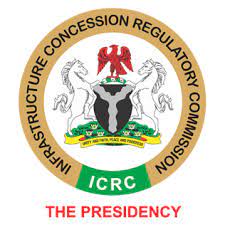
By Tony Obiechina, Abuja
The Infrastructure Concession Regulatory Commission (ICRC) says it will henceforth issue Outline Business Case (OBC) Certificate of Compliance and the Full Business Case (FBC) Certificate of Compliance within seven days.This follows the charge by President Bola Ahmed Tinubu to the Director General of the Commission, Dr Jobson Oseodion Ewalefoh “to accelerate investment in National Infrastructure through innovative mobilization of private-sector funding”.
President Tinubu also charged him to work assiduously to boost infrastructure development in Nigeria as part of the renewed hope agenda of the current administration.In view of the above, Dr Ewalefoh-led management team of the ICRC has streamlined the approval processes of the commission to issue its certificates of compliance within seven days. This will accelerate the turnaround time for approvals by the Commission.“In line with the charge of His Excellency, President Bola Ahmed Tinubu, GCFR, and following his Renewed Hope Agenda, we have streamlined and updated our approval processes to issue either of the Outline Business Case Certificate of Compliance (OBC) and the Full Business Case Certificate of Compliance (FBC) to Ministries, Departments and Agencies (MDAs) that meet the requirements within seven days.“This is part of efforts by the current administration to accelerate infrastructure development, bridge the infrastructure gaps and stimulate the economy through investment of private sector funds in Public Private Partnership endeavours.“By streamlining our processes, the Commission is in no way foregoing any of its stringent approval steps or key requirements, therefore, only business cases that are viable, bankable, offer value for money and meet all other requirements will be approved.“The ICRC cannot do it alone, therefore I implore all chief executives of MDAs to match our momentum and align with this charge of Mr. President to accelerate Infrastructure development and ensure that PPP projects are not stalled at any point but delivered within record time.“The Commission is ready to partner and collaborate with all MDAs to actualize this,” he said.In a statement by Ifeanyi NwokoActing Head, Media and Publicity on Monday the ICRC DG in August rolled out a six-point policy direction which among others, focused on accelerating PPP processes, boosting inter-agency collaboration and ensuring innovative financing.The ICRC was established to regulate Public Private Partnership (PPP) endeavours of the Federal government aimed at addressing Nigeria’s physical infrastructure deficit which hampers economic development.


